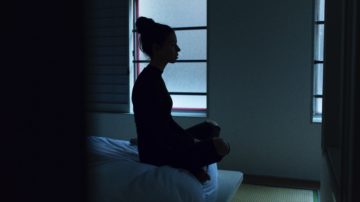Top 12 Facts about Trazodone

1. What is trazodone?
Trazodone is an antidepressant drug. While the primary mechanism of action of this drug is not yet fully ascertained, it is believed to affect the brain’s neurotransmitters specifically by inhibiting the reuptake or reabsorption of serotonin by the nerves in the brain. When this happens, it could decrease depression symptoms as well as elevate the mood, increase appetite, and negate anxiety symptoms.
Contact Us Today for a Confidential Assessment.
Call (877) 959-5909 Now to Speak with a Specialist
2. Primary used for depression treatment
Trazodone is primarily used for treating major depression which is considered as a medical illness that can be treated. Major depression is characterized by a period of deep sadness, low motivation levels, and irritability lasting for at least 14 days in a row. The person’s depression is so severe that it already affects day-to-day activities and the person is unable to function normally. According to different studies, a chemical imbalance in the brain is said to be one of the causes of depression. This is the reason why medications such as trazodone is recommended to people in order to modulate these brain chemicals.
3. Trazodone for sleep disorders

4. Trazodone for schizophrenia and anxiety
Aside from treating depression and sleep problems, trazodone is also given as treatment to patients suffering from schizophrenia and anxiety disorder. trazodone does not cure these two disorders, rather, the drug only helps manage the underlying symptoms.
5. Trazodone and Xanax
Because it is prescribed to treat anxiety, trazodone is often compared to the antianxiety drug Xanax. One popular question is whether trazodone is like Xanax and if it is as effective. Trazodone and Xanax are very different in their chemical structure and their mechanisms of action in the body. However, trazodone also became popular with people who are using Xanax as a recreational drug, thinking that trazodone will provide the same effects.
6. How long does it take effect?
The effect of trazodone will depend on what you use it for. If you are using it for sleep or anxiety, you may be able to feel the drowsiness effects in one to three hours. However, if you are using it to treat your depression, it may take 1 to 2 weeks before you feel any effect and you many need up to 6 weeks before you actually gain the full benefit of the drug.
7. Side effects
Aside from feeling drowsy, some of the common side effects of trazodone include muscle pain, constipation, dry mouth or foul taste in the mouth, headaches, weakness, and intense nightmares. There are people who also experience itching, hives, swelling, sweating, nausea, diarrhea, numbness, drop in blood pressure, ringing in the ears, abnormal bruising or bleeding, and dizziness.
8. Sexual effects
Another known side effect of trazodone is priapism. This condition is characterized by a prolonged and painful penile erection in men, usually lasting four hours, even if they’re not engaging in sexual activity. While this may seem like a good thing that the drug is giving off Viagra-like symptoms, priapism can result in permanent erectile dysfunction in case it is not properly attended medically. There are also some people who reported that they experienced decreased sexual drive while taking the drug.
9. Warnings
People who are suffering a heart condition as well as older people should be cautious about taking the drug. It is also not recommended for people with low levels of magnesium and potassium in their blood. Before using trazodone, you should take into account what other drugs and substances you are taking as it has contraindications with various drugs.
10. Suicide and Trazodone

11. Is trazodone addictive?
Unlike opioids and benzodiazepines like Xanax, trazodone is not believed to be addictive. This does not, however, mean that trazodone addiction does not exist. Because it provides sedative effects, there are now people who are misusing trazodone for recreational purposes or as a daily sleep aid. Just like any other drug, persistent use of this drug can lead to tolerance, which can cause people to take higher doses and become addicted. Once people stop using the drug, it can also cause withdrawal symptoms.
12. Trazodone addiction treatment
Trazodone is a prescription drug that should only be used as indicated by a medical professional. Using it for other purposes can lead to addiction and even overdose. For people who are addicted to trazodone, recovery is possible. There are specialized treatment options that can help.
If you are struggling with substance abuse issues, contact Anaheim Lighthouse today.
